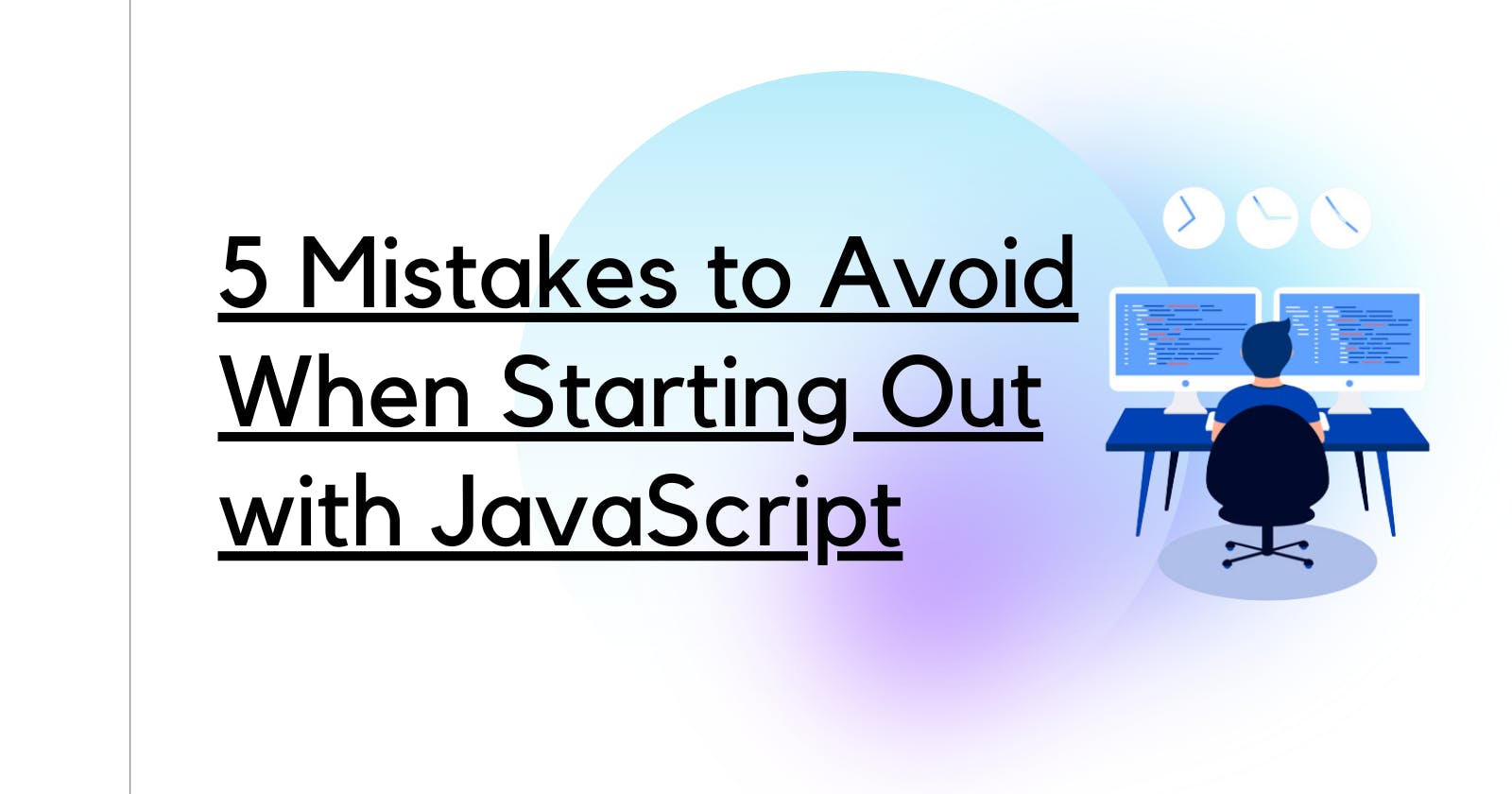As a beginner in the world of JavaScript, it can be easy to make mistakes that can set you back or even discourage you from continuing to learn the language. Here are five common mistakes to avoid when learning JavaScript:
1. Not understanding the basics:
Before diving into more advanced concepts, it is important to make sure you have a solid understanding of the basics of JavaScript, such as variables, data types, operators, and control structures. If you are not comfortable with these concepts, take some time to review them before moving on.
2. Not understanding the difference between synchronous and asynchronous code:
In JavaScript, synchronous code is code that is executed in a linear, top-to-bottom fashion. This means that each line of code is executed one after the other, and the program will not move on to the next line until the current line has been completed.
On the other hand, asynchronous code is code that is executed in a non-linear fashion. This means that the program can move on to the next line of code while it is waiting for an asynchronous operation (such as a network request or a timer) to complete. Asynchronous code is often used to perform tasks that take a long time to complete so that the program does not block or freeze while waiting for the task to finish.
If you do not understand this concept, it can lead to confusing and difficult-to-debug issues. Make sure you understand the difference between synchronous and asynchronous code and how to work with asynchronous operations using callback functions and Promises.
3. Not understanding the difference between var, let, and const:
JavaScript introduced the let and const keywords as alternatives to var for declaring variables. It is important to understand the differences between these three keywords and when to use them, as they have different scoping rules and behaviors.
4. Not understanding the scope of variables:
In JavaScript, the scope of a variable determines where it is available in your code. If you do not understand the scope of variables, it can lead to confusing and hard-to-debug issues. Make sure you understand the differences between global, local, and block scopes and how to use them appropriately.
5. Not testing your code:
It's easy to make mistakes when writing code, especially if you're new to JavaScript. Make sure you test your code as you go to ensure it's working as expected. A code editor or development environment with debugging tools can be a huge help in this process.
Conclusion:
Learning JavaScript (or any programming language) takes time and patience, but with the right mindset and approach, it can be an enjoyable and rewarding experience. By avoiding these common mistakes, With time and practice, you'll be well on your way to mastering this powerful and versatile programming language. you'll be well on your way to becoming a proficient JavaScript developer – and who knows, you may even discover a new passion for web development!
